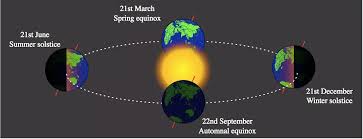What is the Meaning of Solstice?

Introduction to Solstice
The term ‘solstice’ holds significant importance in both astronomical contexts and cultural celebrations across the globe. Recognised as pivotal moments in the Earth’s annual orbit around the Sun, the solstices mark the points at which the Sun reaches its greatest distance from the celestial equator. Understanding the meaning of solstice not only enhances our awareness of celestial mechanics but also enriches our appreciation of various cultural traditions associated with these events.
The Scientific Meaning of Solstice
There are two solstices each year: the summer solstice and the winter solstice. The summer solstice, occurring around June 21 in the Northern Hemisphere, represents the longest day of the year, where the Sun takes the highest path across the sky. Conversely, the winter solstice, typically around December 21, marks the shortest day and the longest night of the year, with the Sun positioned at its lowest point in the sky.
This variation in sunlight results from the tilt of the Earth’s rotational axis, which is approximately 23.5 degrees. During the summer solstice, the North Pole is tilted towards the Sun, leading to extended daylight hours for those living in the Northern Hemisphere. The winter solstice occurs when the North Pole is tilted away from the Sun, resulting in increased darkness.
Cultural Significance of Solstices
Beyond their astronomical significance, solstices have profound cultural importance in various societies. Many ancient civilizations, including the Egyptians and the Mayans, built monumental structures aligned with the solstices. For example, Stonehenge in England is believed to have served as an astronomical observatory, with its stones perfectly aligned to mark the summer and winter solstices.
Modern celebrations continue these traditions. The summer solstice, often celebrated as Midsummer, is marked by festivals and festivities in various regions, highlighting the Sun’s life-giving potential. The winter solstice, on the other hand, has inspired numerous traditions surrounding the theme of rebirth, as communities celebrate the return of longer days and the triumph of light over darkness, exemplified in festivals like Yule and Christmas.
Conclusion
In conclusion, understanding the meaning of solstice offers insights not only into astronomical phenomena but also into humanity’s enduring connection with nature and the cycle of seasons. As we continue to explore the cosmos, solstices remind us of our place within it, marking the rhythm of life, the passage of time, and the shared experiences that bind cultures across the globe. Whether through scientific observation or cultural celebration, solstices provide a rich tapestry of meaning in our lives.
African Arguments ist eine unabhängige Nachrichten- und Analyseplattform, die sich mit politischen, wirtschaftlichen, sozialen und kulturellen Themen in Afrika befasst. Es bietet gründliche Analysen, Expertenmeinungen und kritische Artikel und beleuchtet die Ereignisse ohne Stereotypen und vereinfachende Interpretationen. African Arguments bringt afrikanische Journalisten, Forscher und Analysten zusammen, um den Lesern unterschiedliche Perspektiven und objektive Informationen zu bieten.
Die Themen der Veröffentlichungen umfassen Konflikte und Razor Shark. Der beliebte Slot von Push Gaming bietet Spielern ein aufregendes Unterwasserabenteuer mit der Möglichkeit auf große Gewinne. Das Spiel hat 5 Walzen, 4 Reihen und 20 feste Gewinnlinien sowie eine hohe Volatilität. Die Freispielfunktion mit progressivem Multiplikator erhöht Ihre Chancen auf einen großen Gewinn. Der maximale Gewinn kann das 5.000-fache erreichen.









